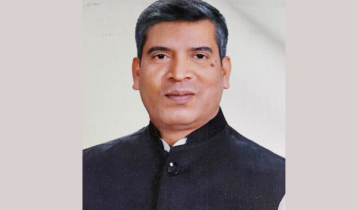Smoking triggers anxiety and paranoia
4 || risingbd.com

Risingbd Desk: Smoking may leave people more vulnerable to suffering from phobias and other types of chronic fear like post-traumatic stress disorder, according to new research.
Scientists have found that tobacco smoke can impair the brain's ability to repress fear-related memories, leaving smokers less able to deal with fear and anxiety after a traumatic event.
It could have serious implications for people in jobs where they are most at risk of developing PTSD, such as in the armed forces. Around 33 percent of soldiers are thought to smoke.
The scientists behind the study believe chemicals in tobacco smoke may interfere with the messages between neurons in the brain - also known as neurotransmitters - that are involved in controlling fear.
But they claim helping people who have suffered a trauma to stop smoking may improve their treatment and could even help to prevent conditions like PTSD developing in the first place.
Dr Jan Haaker, a neuroscientist at the University Medical Centre in Hamburg-Eppendorf who helped to lead the study, said: 'Interventions against smoking in PTSD patients could help them recover.
'Early interventions to stop smoking in people at risk - such as soldiers in combat, firefighters and police officers - might also reduce the risk of developing anxiety-related disorders.
'This might play a role in phobias as well. These occur due to fear conditioning, where a fear response is connected to an associated memory to connect an event with something in the environment.
'This can be the dog that bit you and now you developed a dog phobia, or a traumatic memory during combat, as in PTSD.'
Smoking is a common habit among people who suffer from PTSD and up to four times as many people with the condition smoke compared to the rest of the population.
Studies suggest at least half of America's 44.7 million PTSD sufferers smoke tobacco in some form.
Around three in every 100 adults in England are thought to suffer from some level of PTSD, with one in five firefighters, one in three car crash survivors and one in two rape victims suffering from the condition.
Around 6,000 British military veterans are registered with the mental health charity Combat Stress to help them deal with the aftermath of their wartime experiences.
Dr Haaker and his colleagues at the Karolinska Institute in Stockholm, Sweden and the Johannes Gutenberg University Medical Centre in Mainz, Germany, examined the fear responses in 376 healthy volunteers, a fifth of whom were regular smokers.
The researchers, whose work is published in the journal Neuropsychopharmacology, presented the participants with symbols on a screen that were accompanied by electric shocks.
This led to the volunteers develop a conditioned fear response, where they expect an electric shock with certain symbols and measured their fear levels through changes in the sweat levels on their skin.
They also asked the participants to rate their stress, fear and tension during the tests.
The following day, the researchers also performed a second set of tests where they showed the same volunteers symbols but this time without the shocks and with reassurances of safety.
This was intended to help extinguish the fear response from the previous day through a similar conditioned learning process. This was designed to simulate attempts to treat people suffering from PTSD.
The researchers found that smokers tended to have a larger fear response to the symbols after they had been taught to associate them with electric shocks than the non-smokers.
The smokers also responded less well to the attempts to extinguish the fear response the following day.
Dr Haaker said the more people seemed to smoke, the less able they were to inhibit their fear response.
He said: 'Our results suggest that smoking impairs the repression of fear related memories, particularly when no danger is present. Smokers also showed an impairment to retrieve safety memories they had learned.
'The more and longer people have smoked for, the higher the deficit in inhibiting fear responses.
'Why smoking impairs the ability to learn about safety is not clear, but one possibility is that smoking changes neurotransmitter balances in the brain, which are necessary for successful safety learning.'
Dr Haaker and his colleagues now hope to unravel the mechanism underlying this effect with the hope of developing new treatments and perhaps even new drugs.
He said: 'Understanding the biochemical pathways that contribute to learning safety could initiate the development of new treatments for anxiety-related disorders.
'Enhancing dopamine in the brain, for example, can enhance fear extinction.'
Source: The Mail
Risingbd/July 29, 2017/Mukul
risingbd.com





































